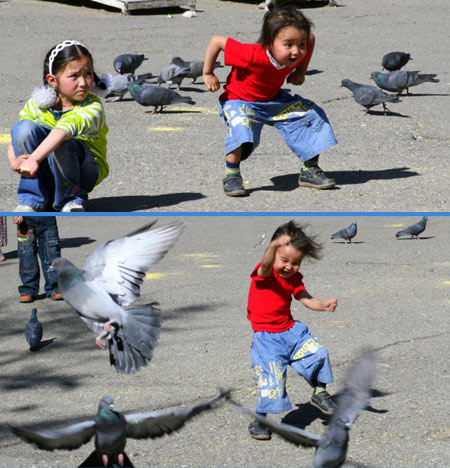
There are many things that we aspire to do, but, for some reason they remain quite difficult. It is better to have the right intention and be aware of how difficult they are. These are some of the things that are very difficult to do and how we could make them a little more practical.
Admit We’re Wrong
Nearly all of us find it difficult to admit we were wrong. It stems from a false belief that we somehow always expect ourselves to be right. Part of the problem is our pride. We feel embarrassed to admit we get things wrong; we feel it somehow diminishes our own standing. But, to admit we were wrong is a sign of strength, flexibility and humility. People will never think ill of us simply because we admit to making a mistake. The mind’s insistence on trying to justify everything we do merely creates problems for ourselves and others. We need to change our mindset and be happy to admit to mistakes without feelings of guilt or humbled pride.
“Why do we find it so difficult to confess our mistake’s? The immediate answer is fear. What is fear? Fear is something that constantly binds us. Fear is something that constantly tells us that we are entirely different or separate from others, that our existence is only for ourselves.”
– Sri Chinmoy
Be Non Judgemental
We come across many people in life. Some we like, some we develop dislike. Our mind is constantly judging. We judge people on their appearance, on what they say. Then our interactions with them are clouded by our judgement. It is much better to have a clear mind without prejudging others.
Accept Criticism in Good Spirit
Criticism can be an excellent opportunity to learn and develop. Without criticism we may continue to make mistakes and gain a large ego. Yet, despite the benefits of receiving constructive criticism. We feel challenged and personally affronted. We love to receive praise but struggle to deal with criticism.
Be Cheerful under all Circumstances
Life gives us ups and downs, whether we like it or not. There is nothing we can do about our circumstances. Sometimes fate gives us challenging circumstances. Becoming miserable does not help, it only makes the situation more difficult. To remain cheerful in difficult circumstances is a great boon. Cheerfulness can overcome many obstacles and help us to discover light even in seemingly difficult times. But, unfortunately, when things don’t go to plan we start feeling sorry for ourselves and glum. Of course, this does not help; but, this is what we tend to do.
Practise what we Preach
Alas, it is easy to say what we should do, but, it is another thing to do it! If world peace could be attained by good intentions it would be achieved a long time ago. Quite often we know what we should do, we hear our voice of conscience or message from our heart, but, some other force prevents us from doing the right thing.
Even worse, we tell others what to do – when we have no intention of doing it ourselves. Still to have good intentions is a start. What we need to do is talk a little less and act a little more. Putting into effect our good intentions is the real challenge.
Listen
Everyone wants to talk, but, how many have time to listen? Listening is a great art. Just listening to others can help them to work out their problems. They don’t need our advice, but, they may need an opportunity to work out what they should do. If you dominate conversations and always like to have the last word. Sit back and try to listen, especially to those who are shy or need a reliable friend (see: The art of listening)
Do One Thing at a Time
Simplicity and focus is a great virtue. But, we feel if we can try to do 2 things at once we will get more done. Alas, this rarely works, we just get stressed from the demands we place on ourselves; stress that need not be there.
Get Up early in the morning
How beautiful it is to get up at dawn, listening to the dawn chorus before the rush of humanity enters the day. Unfortunately, the body doesn’t always follow our own good intentions. Though you could try these tips to get up early in the morning.
Eat Less Sugar
Another good habit would be to eat less sugar. But, cake tastes good so what can we do? 🙂








